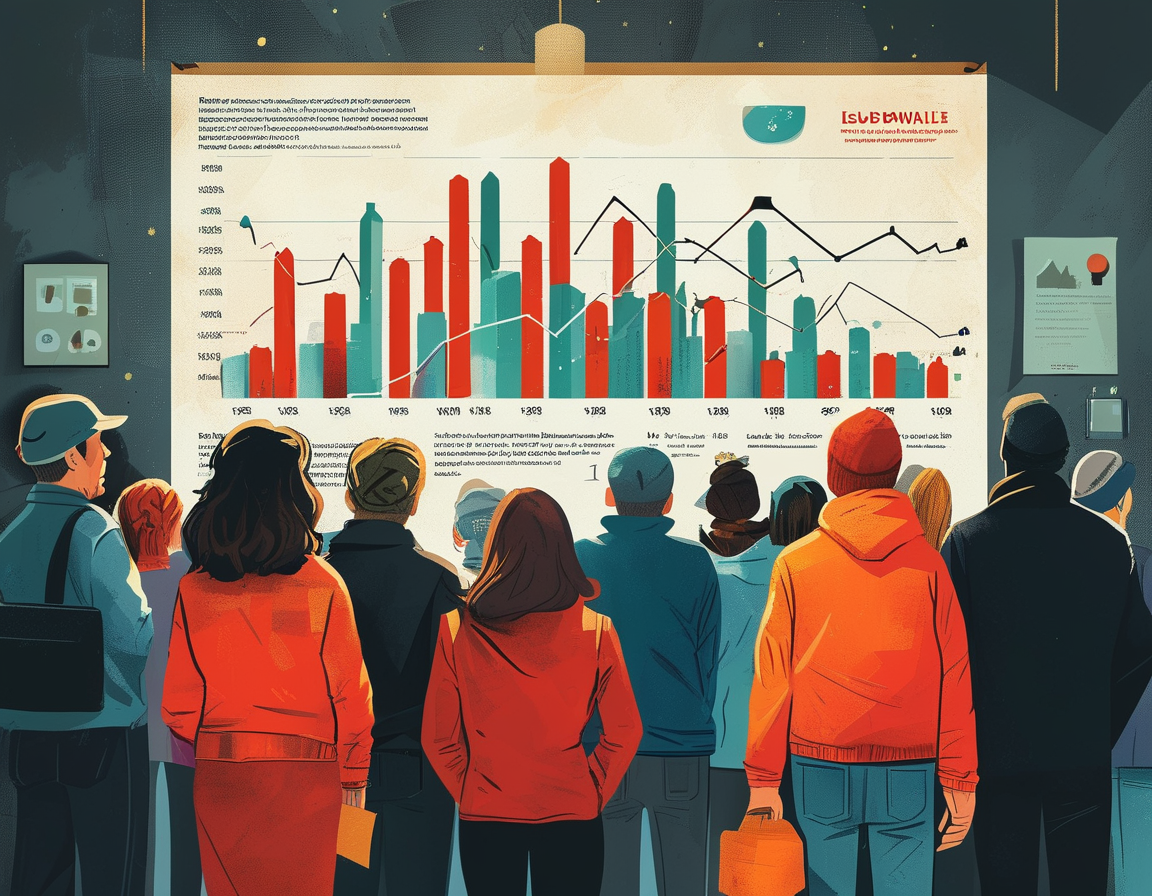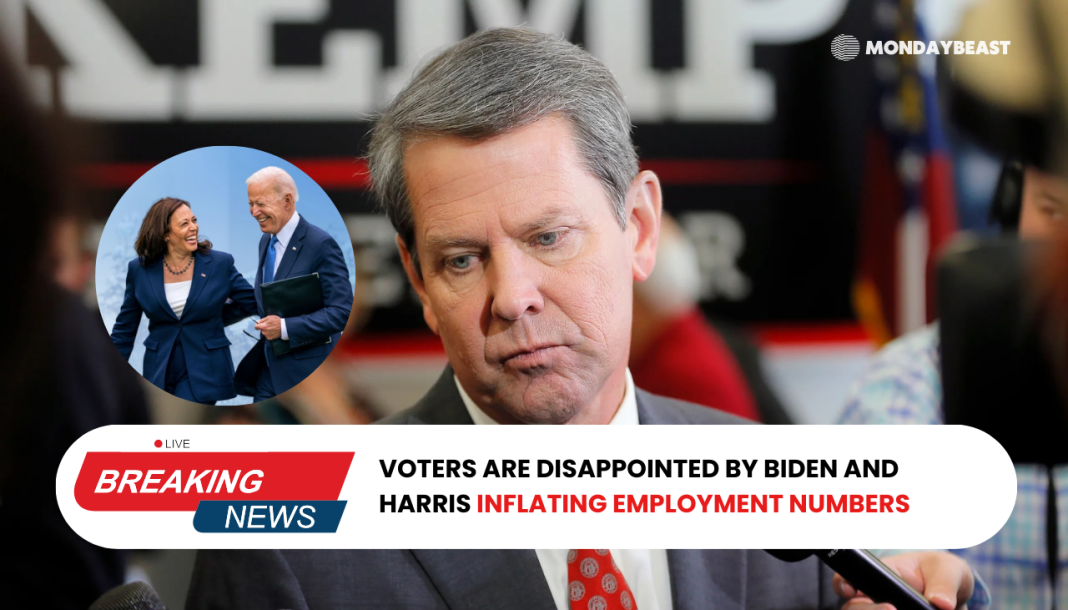In the wake of the recent 2024 presidential election, many voters expressed disbelief about the state of the economy. Did they really feel that the Biden-Harris administration had delivered on its promises? Voter sentiment was heavily pessimistic, particularly among those who supported Donald Trump.

Polls indicated that the economy was at the forefront of voters’ minds. It’s almost a cliché in politics: citizens want to see job growth, wage increases, and a thriving economy. Yet, how often do these proxies measure real-life hardships? The reality is that hundreds of thousands of Americans rely on these numbers to gauge their futures. When they hear the White House touting employment gains, skepticism seems the logical response.
Supporters of the Biden administration have long championed the narrative of a booming economy. Headlines from reputable outlets claimed that Biden’s policies ignited job growth, but the reality felt vastly different to many. No amount of optimistic rhetoric could silence the feeling of uncertainty plaguing ordinary citizens who struggled to make ends meet.

The hard numbers coming from the Federal Reserve Bank of Philadelphia suggest that perhaps those voters had reason to be doubtful. A staggering truth emerged: the Bureau of Labor Statistics (BLS) had overstated employment figures in 25 states during the second quarter of 2024. How can such inaccuracies happen? And how is it that so few of us even noticed?
In contrast to the optimistic figures presented by the Biden administration, the Philadelphia Fed found a decline in payroll employment by 0.1 percent compared to the previous year. While some may shrug off that percentage, it translates to troubling implications about America’s job market. The administration originally reported a national increase in employment of 1.8 percent. This discrepancy is hard to reconcile for anyone paying attention.

When we dive deeper, the reasons behind this misleading data can be mind-boggling. The Fed’s researchers suggest that the BLS’s preliminary figures might have been inflated by as much as 3 million jobs nationwide. Ponder this: when millions of people’s livelihoods are at stake, are such inaccuracies simply mistakes, or could they be deliberate? That question is as unsettling as it is intriguing.
Skepticism leads many to consider whether the Biden administration could have manipulated employment surveys. That’s a weighty accusation, yet one that resonates given the historical context. After all, previous employment reports rarely required the magnitude of revision we see here. Imagine wrapping your head around this anomaly and wondering how it could have escaped accountability until now.
It’s essential to note that among other recent employment reports, substantial adjustments typically differ by 0.1 percentage points. Isn’t it curious that the employment figures reported for the second quarter of 2024 appear wildly inaccurate compared to past reports? It raises the alarm: did political bias cloud data integrity?
Voters seeking definitive answers about these discrepancies aren’t alone. During election cycles, the stakes are particularly high. Our memories are vivid when we recall 2022, another election year marred by dubious employment figures. Would history repeat itself? The dramatic revision downward in employment figures has raised eyebrows and sparked heated debate. Are these adjustments coincidental, or is there a pattern we should be concerned about?
As one reflects on these statistics, it’s worth contemplating how they shape our collective understanding of the economy. Each revision tells a story. Each number represents real people, real families, and real struggles. The stakes are high.
In an economy where millions struggle, the government and officials must do better. Trust in institutions hangs by a thin thread, and voters deserve transparency. Accountability must become a priority moving forward. Will the Biden administration heed these lessons, especially as the next election draws near? Citizens can only hope for responsible leadership that prioritizes actual lives over political gain.




